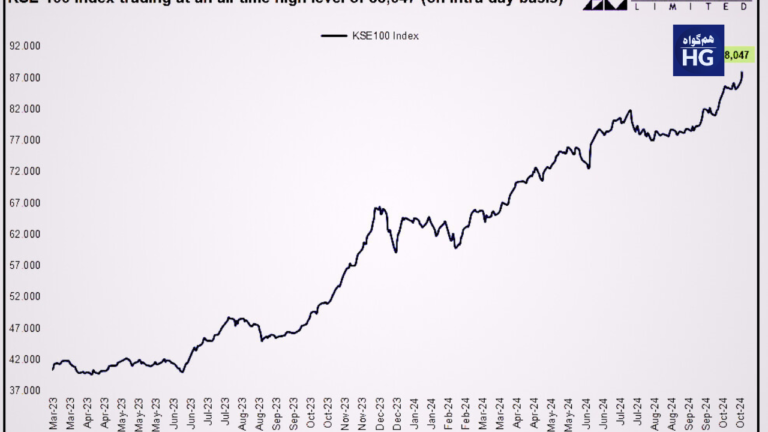Exploring the Best Ecommerce Hosting
Introduction
Ecommerce hosting refers to specialized hosting services designed to support and optimize online stores and e-commerce websites. These hosting services offer features that are specifically tailored to the unique requirements of running an online store.
The success of an online store depends on various factors, and having the right hosting provider is crucial. Here are a few reasons why specialized hosting is important for the success of online stores:
- Performance: Online shoppers expect fast loading speeds when they visit an e-commerce website. Slow loading times can lead to high bounce rates and loss of potential customers. Specialized e-commerce hosting providers understand the importance of fast performance and optimize their servers to ensure quick response times.
- Reliability: Downtime can be detrimental to an online store as it directly impacts sales and customer trust. Ecommerce hosting providers offer high uptime guarantees, ensuring that your website remains accessible to customers at all times.
- Scalability: As your online business grows, you need a hosting solution that can scale with your needs. Specialized e-commerce hosts provide scalable resources, allowing you to handle increased traffic and accommodate growth without any disruptions.
- Security: Online stores handle sensitive customer information such as payment details, making security a top priority. Ecommerce hosting providers offer robust security measures like SSL certificates, firewalls, and malware scanning to protect customer data from potential threats.
Choosing the right e-commerce host is essential for the long-term success of your online business. In the following sections, we will explore key factors to consider when selecting an e-commerce host, different types of e-commerce hosting plans available, essential features to look for in a reliable e-commerce hosting solution, popular providers in the market, and more.
Key Considerations for Choosing the E-commerce Host
When selecting an ecommerce hosting provider, it is crucial to consider several key factors to ensure optimal performance and support for your online store.
1. Reliability and Performance
To keep your online store thriving, go for super dependable ecommerce hosting. Look for providers boasting 99.9% or higher uptime guarantees. A solid track record means your site stays live, pleasing customers and keeping sales flowing.
Speed is key in ecommerce. Slow sites annoy shoppers and drag down your search rankings. So, pick hosting that’s all about performance. Consider things like server quality, network setup, caching, and content delivery networks (CDNs). These factors make sure your site loads fast, keeping customers happy and boosting your bottom line.
2. Security Measures
Experience of safe online shopping, your ecommerce hosting needs top-notch security. That means SSL, firewalls, and malware scans to keep customer data safe and transactions secure.
Protecting customer info is a must in ecommerce hosting. It keeps you in line with privacy laws and shields against cyber threats.
3. Scalability Options
- The ability to easily scale resources as the business grows allows for seamless expansion without compromising website performance. This ecommerce website maintenance blog post discusses this topic in detail.
- Flexibility in handling seasonal traffic variations ensures that the hosting environment can adapt to fluctuating demands.
4. Support and Expertise
- Availability of specialized support for ecommerce platforms is essential for addressing technical issues specific to online stores.
- Experience in dealing with online store issues demonstrates the hosting provider’s capability to understand and resolve ecommerce-related challenges effectively, as evident in this blog post on SSD hosting for Magento.
By carefully evaluating these considerations, you can select an ecommerce hosting provider that aligns with your business requirements and empowers your online store for success.
Different Types of E-commerce Hosting Plans Explained
When it comes to e-commerce hosting, there are several types of hosting plans tailored to meet the specific needs of online businesses. Each type offers distinct features and capabilities that cater to different levels of traffic, security requirements, and customization options. Here’s an overview of the main types of e-commerce hosting:
1. Shared Hosting
- Description: Shared hosting involves multiple websites sharing a single server and its resources.
- E-commerce Suitability: Suitable for small to medium-sized online stores with moderate traffic and resource needs.
- Pros: Cost-effective, easy to set up, and maintain.
- Cons: Limited server resources, potential performance impact due to sharing resources with other websites.
2. Virtual Private Servers (VPS)
- Description: VPS hosting simulates a dedicated server within a shared hosting environment, offering more control and dedicated resources.
- Suitability for E-commerce: Ideal for growing e-commerce businesses with increasing traffic and performance demands.
- Pros: Enhanced performance, scalability, and customization options compared to shared hosting.
- Cons: Higher cost than shared hosting.
3. Dedicated Servers
- Description: Dedicated servers provide exclusive use of an entire server for a single website or application.
- Suitability for E-commerce: Suited for large e-commerce operations with high traffic volumes and specialized requirements.
- Pros: Maximum performance, control, and security.
- Cons: High cost and requires technical expertise for management.
4. Cloud Hosting
Cloud hosting is great for growing websites. It uses multiple servers for a faster and more scalable service. It’s cost-effective and adjusts to traffic changes. You can choose your plan based on visitor numbers, storage, and provider reliability. It’s also great for medium sites but, may be too much for small sites or limited for large companies.
The hosting setup provides separate units for websites, ensuring efficient resource allocation and performance optimization. Here are some key points:
- Distributed Resources: If a website experiences high traffic or resource strain, it can utilize resources from multiple physical servers.
- Balanced Performance: Prevents any single website from completely taking up the server’s processing power.
- Scalability: Users have the flexibility to adjust bandwidth based on their website’s size and traffic needs.
Each type of e-commerce hosting plan has its own set of advantages and limitations. Understanding the unique characteristics of each can help you make an informed decision based on your specific business requirements.
Top Features to Look for in an Ideal Ecommerce Hosting Solution
When choosing an ecommerce hosting solution, there are several essential features that you should consider. These features play a crucial role in ensuring the optimal performance and security of your online store. Here are the top features to look for:
- Fast Performance: Speed is paramount for ecommerce websites. A slow-loading site can lead to higher bounce rates and lost sales. Look for hosting providers that offer high-performance servers, content delivery networks (CDNs), and caching mechanisms to ensure your site loads quickly and efficiently.
- Free SSL Certificates and Secure Socket Layer (SSL) Encryption: Security is vital for any ecommerce website. SSL certificates encrypt sensitive customer data, such as credit card information, during transmission, ensuring safe transactions. A reliable hosting provider should offer free SSL certificates and support secure socket layer (SSL) encryption.
- Advanced Security Features: Ecommerce websites are prime targets for cyber attacks. Look for hosting providers that offer robust security measures such as DDoS protection, firewalls, malware scanning, and regular backups. These features help safeguard your online store and protect customer data from potential threats.
By prioritizing these essential features when selecting an ecommerce hosting solution, you can ensure the smooth operation of your online store while providing a secure shopping experience for your customers.
Case Study: A Closer Look at the Hosting Architecture of a Successful Online Store
In this case study, we will examine how a popular ecommerce store used a strong hosting system to achieve great performance and growth. By using the right hosting solution, this online store was able to give its customers a smooth shopping experience while handling high traffic volumes effectively.
Background
- The ecommerce store sells a wide range of products and experiences consistent traffic spikes during holiday seasons and promotional events.
- The previous hosting provider couldn’t handle the sudden increase in visitors, leading to slow page load times and occasional downtime.
- To solve these issues, the store decided to switch to a dedicated hosting solution that could offer better scalability, performance, and support.
Popular Ecommerce Hosting Providers in the Market
When it comes to ecommerce hosting providers, there are several reputable options in the market that cater to the diverse needs of online businesses. Here’s a comprehensive review of some of the top ecommerce hosting providers and their key strengths and offerings:

Discovering Best Profitable Ecommerce Niches
1. Shopify
- Known for its user-friendly interface and extensive e-commerce features
- Offers a range of customizable templates and a secure shopping cart system
- Provides integrated payment solutions and seamless order management
2. IONOS
- Offers scalable hosting solutions with a focus on reliability and performance
- Provides robust security features and flexible pricing options
- Known for its user-friendly control panel and excellent customer support
3. Bluehost
- Well-established hosting provider with a strong emphasis on WordPress integration
- Offers reliable uptime, scalable hosting plans, and 24/7 customer support
- Known for its beginner-friendly approach and competitive pricing
4. Siteground
- Renowned for its high-performance hosting environment and top-notch customer support
- Offers advanced security solutions, automatic updates, and intuitive site management tools
- Known for its speed optimization features and proactive server monitoring
5. A2 Hosting
- Focuses on turbocharged hosting services with emphasis on speed and performance
- Offers developer-friendly tools, free site migration, and anytime money-back guarantee
- Known for its commitment to eco-friendly hosting practices
6. GoDaddy
- Well-known for its domain registration services as well as hosting solutions
- Offers a range of hosting plans suitable for small businesses and enterprise-level websites
- Provides easy-to-use website builder tools and marketing resources
7. HostGator
- Offers feature-packed hosting plans with a strong focus on scalability and reliability
- Provides a variety of tools for website building, advanced security features, and 24/7 support
- Known for its affordable pricing and user-friendly control panel
8. DreamHost
- Emphasizes open-source technology with support for various programming languages
- Offers scalable cloud hosting solutions with SSD storage and unlimited bandwidth
- Known for its commitment to privacy and transparency in data handling
9. InMotion Hosting
- Known for its business-class hosting solutions with a focus on performance and reliability
- Offers free data backups, secure email services, and e-commerce integration features
- Provides excellent customer support with a strong emphasis on customer satisfaction
10. Cloudways
- Specializes in managed cloud hosting with support for multiple cloud infrastructure providers
- Offers advanced caching options, dedicated firewalls, and seamless scaling capabilities
- Known for its user-friendly platform and transparent pricing model
These leading ecommerce hosting providers offer a wide range of features tailored to meet the specific requirements







